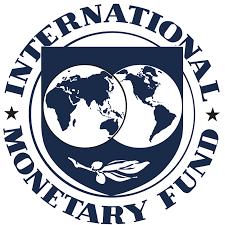The 2019 IMF Staff Report on Guyana has pointed to key weaknesses in the economy that have to be overcome including the skilled labour shortage and high energy costs.
Released on Tuesday, it said that the shortage of skilled manpower continues to constrain medium to long-term growth in the country.
“Gross school enrolment ratio at tertiary level for Guyana is about 12 percent, much lower than the Latin America and the Caribbean average of 44 percent”, the report said. It added that the current low expenditure
on education of 10 percent relative to the Caribbean average of 18 percent of total government expenditure underlines the need to increase outlay on education policy reforms which are aimed at expanding access to education, improving the curriculum to better connect to modern labour market needs and enhancing vocational training. It added that to address the skills gap and satisfy an expected increase in the labour demand, Guyana could adopt more liberal or open immigration policies, including free movement of all categories of workers from other CARICOM countries.
The question of migration for labour purposes has become an increasingly controversial topic here in the run up to first oil.
The staff report said that female labour participation in the economy declined slightly from 42.6 percent in 2017 to 41.2 percent in 2018. It said that promoting more flexible working arrangements could help increase female labour participation.
Inadequate infrastructure remains a key barrier to investment, the IMF report said.
“Welcome efforts are underway to improve access to roads, electricity and telecommunication services to enhance shared growth, employment opportunities and help to reduce economic disparities between coast and the hinterland. Given Guyana’s vulnerability to climate risks and related natural disasters, more effort should be put on developing climate resilient infrastructure networks”, the report added.
Key areas of the country remain vulnerable to inundation particularly in the light of changed climate patterns. The trail linking Linden to Lethem is a prime example, experts here say, of key infrastructure that is overwhelmed by annual flooding.
The IMF report – which followed Article IV consultations here in June – says that high energy costs remain a constraint to growth. It said that plans to use Guyana’s natural gas resources for power generation will help to improve the cost-effectiveness, energy efficiency and
sustainability of the present energy matrix, while providing cleaner energy solutions.
While the government has talked about natural gas plans, these won’t materialise until after first oil and will require feasibility studies. The present caretaker status of the government is also likely to delay any significant move on this front.
The IMF report said that the expansion of the generation and transmission capacity of GPL would help to meet immediate energy requirements while renewable energy initiatives such as solar, wind and bio energy are being pursued. It added that the Low Carbon Development Strategy, under which Guyana commits to reduce emissions and deforestation in exchange for development aid bodes well for the transition to the green economy.
Improving the business environment to unlock the potential of the private sector was also highlighted in the IMF report.
“Guyana continues to rank below the regional average, at 134th (out of 190 countries), reflecting challenges in dealing with construction permits, getting electricity, and resolving insolvency; but ranks relatively well in protecting minority investors. Reforms to the ‘doing business’ environment will be necessary to ensure that non-oil industries remain competitive. Key reforms needed to improve the business environment include: amendments to the code of practice to simplify and expedite the issuance of construction permits and inspections; improving the procedures and reducing the time and cost of accessing electricity; and strengthening the legal framework for dealing with insolvency and judicial liquidation”, the IMF report said.






